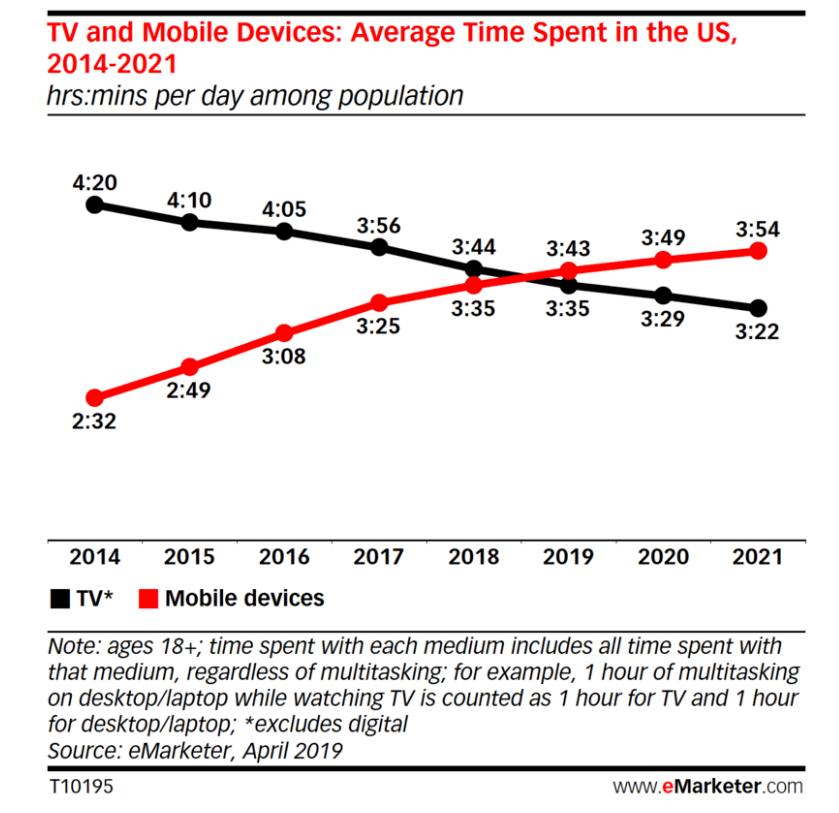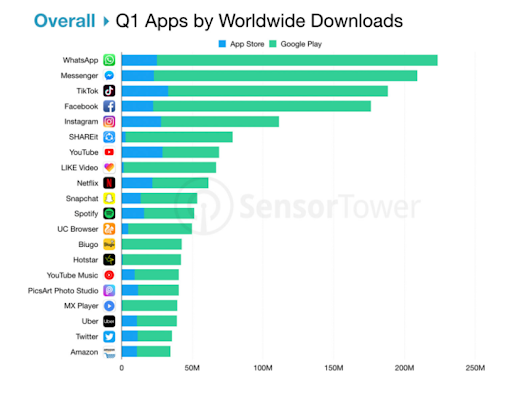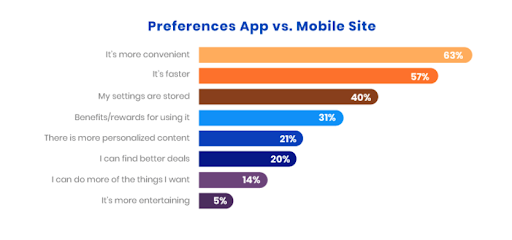With the hyper-competitive world of mobile apps, developers are racing toward maximizing the available tools, frameworks and platforms to create the most functional, feature-rich apps in the easiest way possible. And with
cross-platform development made possible by AngularJS and Ionic, they seem to have found a good solution on their hands.
App Rising
Take a gander at these stats on mobile apps:
- In 2019, one study found that the average American spends
3 hours and 35 minutes per day on a mobile device, checking their phones nearly 80 times a day. Of that time spent on phones, 89% is spent on mobile apps.
- Interesting to note, the average American spends 50 minutes on audio apps and 40 minutes on social media.
- Of these apps, 95% were free on Google Play, while 90% of App Store apps were the same.
- But while a large majority of the apps in the market are free, monetization opportunities still abound. One report expects in-app advertising spending to reach
$201 billion by 2021.
- And when it comes to commerce,
78% of users prefer to access a store from an app rather from its mobile website counterpart.
Image source: https://www.mindinventory.com/blog/mobile-app-growth-statistics-2020/
What is AngularJS?
According to its developer guide,
AngularJS is a structural framework for dynamic web apps. Essentially, it lets you use HTML as your template language while allowing you to extend HTML’s syntax to express your app components more clearly and succinctly. Additionally, its data binding and dependency injection takes away most of the code you would’ve otherwise needed to write. And because all of it is done within the browser, it’s an ideal partner for any server tech.
In its most basic sense, AngularJS is what HTMl would’ve been had it been designed for apps. This means that developers get to do away with figuring out how to trick the browser into doing what they want.
What is Ionic Framework?
Conversely, Ionic Framework is an open source UI toolkit for building high-quality,
performance mobile and desktop apps using web technologies like HTML, CSS, and JavaScript. It’s focused on the UI interaction of apps, such as its controls, interactions, gestures, and animations.
Apart from its user-friendliness, what’s great about Ionic Framework is it integrates easily with other libraries and frameworks like Angular, while also being able to be used on it own using a simple script without a frontend framework.
Benefits of Combining AngularJS and Ionic for Mobile App Development
1. Create Custom Components
It may sound simple to those outside the field, but developers have long found the task of creating icons and splash for hybrid application development by
iOS app agency to be quite cumbersome. With Ionic, you’re only required to build two files - .ai, .psd, or .png within the resources directory.
One of the main advantages of using AngularJS and Ionic is it lets you develop, test, and deploy the app on any platform using Ionic’s CLI function. And with its own set of readymade components, mobile apps can feature different stylish themes and typography. All these results in enhanced mobile UI, while also enabling the incorporation of features like push notifications and analytics as a network.
2. One App, Many Platforms
As pointed out by
DZone, because it is built upon AngularJS, Ionic features an entire library of optimized HTML, JS, and CSS tools. And because of the plethora of benefit coders through Ionic, a lot of coding and developing processes can be done away with. In fact, one single code is enough to develop a web app and run it over different mobile platforms, with any app built using this combination accessible through the Play Store and
used on different devices.
3. Larger Market Base
As alluded to earlier, combining AngularJS and Ionic allows you to create
cross-platform apps, which ultimately leads to a larger market base and greater access to target users. Ionic’s combination of AngularJS, HTML5, CSS, and Cordova means it enjoys excellent support. As well, because of features that are naturally integrated as native apps on a shared base code, it essentially provides
extensive possibilities for your business.
4. Reusable Logic
You’ll notice things always come back to its cross-platform development. And it’s because it just gives great ease when it comes to reusing various elements. This leads to a heightened capacity for maintaining both pace and consistency.
And because Angular keeps the UI, information model, and code rationale independent, it makes it easier to reuse the app logic for different operating systems, devices, and different stages of development. Then, when Angular doesn’t allow you to reuse the code, Ionic’s library of components makes reusing code possible again.
5. Three-Way Data Binding
A practice that’s become increasingly popular over the years, three-way data binding basically means that the UI refreshes once the software template is updated. With this, you’re not only able to synchronize UI and in-memory data, you’re also able to sync data without the use of backend services.
Takeaway
As you can see, using this hybrid mobile app
development framework, developers will increasingly be able to create more sophisticated applications. And added to ease of use, and cross-platform usability - the combination of Angular and Ionic is almost better than getting the best of both worlds.




